When I was young, I
spent most of my childhood time in countries such as Singapore and the United
States. After finishing my education studying abroad, I returned to my home
country, Indonesia. I have been living in Indonesia after finishing my
education. I'm not a Politician or someone with power; I'm just a simple
businessman working as a freelance in my father's company. Despite my country not being perfect, I still love
my country. I want my country to prosper and become a nation respected by
others worldwide. I believe there is much room for improvement in my country. I
know this topic has nothing to do with investing or personal finance; however,
I firmly believe a tremendously prosperous nation correlates with citizens'
wealth and better living standards. As a stock investor in Indonesia, I believe
if my country can improve much further, it will automatically make me and my
family wealthier as well.
Indonesia is a country with enormous economic potential, which has not gone unnoticed by the international community. Indonesia's largest economy in Southeast Asia possesses various qualities that position the country well for advanced economic development. Furthermore, the central government has recently expressed significant support for reducing Indonesia's traditional reliance on (raw) commodity exports and increasing the importance of the manufacturing industry in the economy. Infrastructure development is also a top priority for the administration, and it should have a positive impact on the economy. I believe more foreign investment from the entire world, improving the nation's infrastructure, and ending corruption are vital requirements to grow Indonesia's economy. This article will share my opinion and views on how my country, Indonesia, can prosper much further. Moreover, I will explain why I have so much respect for my current president, Jokowi Widodo.
More Foreign Investments.
I believe my country can advance if we allow more foreign investors in the country. For emerging and less developed countries, foreign direct investment (FDI) is one of the essential sources of funding. The portion of production used by private corporations to produce future output from transnational or multinational enterprises in foreign nations, which are concerned with the accumulated capital volume, is known as foreign private investment. Aside from providing additional investible resources and capital formation, FDI may also transfer production technology, skills, innovation, organizational and managerial practices, and access to international marketing networks, all of which are important for a country's economic development.
If my country, Indonesia, can allow more foreign investment, it creates job opportunities for the nation. Being the fourth largest populous country globally, I believe Indonesia has the human resource to boost its economy. I have seen many improvements since I came back to Indonesia. For example, there was not my favorite furniture store, Ikea, in Indonesia when I just came back. However, In Indonesia, IKEA has three large shops, the first of which opened in Alam Sutera, Tangerang, in 2014. The Sentul City Bogor store opened in 2019, followed by a West Java store in March of this year, with a specific section for local SME items. I was so happy to find out that Ikea opened a branch in my country. Without this foreign investment in my country, I would not be able to shop at my favorite furniture store.
Most importantly, I think more foreign investment benefits my country by providing for resource transfers and knowledge, technology, and skill exchanges. My father did not build his manufacturing firm in an instant. He started as a small trader importing goods from China and selling them in Indonesia. He knows that importing goods from China is not a sustainable business because everyone is doing it. As a strategic businessman, my dad decided that he wanted to manufacture his products by himself. He brought the knowledge and skills he learned from China and applied them in Indonesia. Instead of simply importing goods from China, his home appliances manufacturing firm creates products in Indonesia. This cut many expenses such as import fees and took advantage of the low labor cost in Indonesia. He could make more profit selling his goods and create high-quality merchandise at a lower price for the Indonesian society. This benefits both my father and Indonesian society together because people can buy the products my father's manufacturing firm develops at a lower cost than our competitor.
Imagine more manufacturing firms coming from overseas to Indonesia. It creates jobs for the nation, but it also benefits the people living in Indonesia. People can buy products at a competitive price, which results in them purchasing things at a lower cost. This is the reason why I like China so much. This is because they are considered to be the world's manufacturer. They can build goods at such a low cost that help create jobs and benefit their homemade products in their own country.
Improve Infrastructure.
Infrastructure facilitates trade, provides energy to businesses, connects workers to their employment, provides an opportunity for underserved communities, and defends the country from an increasingly volatile natural environment. Infrastructure is the backbone of a strong economy, from corporate investment in telecommunication systems, broadband networks, freight trains, energy projects, and pipelines to governmental spending on transportation, water, buildings, and parks.
The economy needs reliable infrastructure to connect supply chains and efficiently move goods and services across borders. Infrastructure connects households throughout urban areas to higher-quality jobs, healthcare, and education options. Greenhouse gas emissions can be reduced by using renewable energy and public transportation. Broadband networks, water systems, and energy generation and distribution follow the same economic rationale.
When infrastructure is poor, the economy runs inefficiently because logistics costs are high, businesses lack competitiveness (because the costs of doing business are high). There is a high degree of social injustice when, for example, it is difficult for some members of the population to access healthcare facilities or for children to reach a school.
Infrastructure development and macroeconomic development go hand in hand (have a reciprocal relationship) because infrastructure development spurs economic expansion via the multiplier effect. In contrast, economic expansion spurs the need to expand existing infrastructure to accommodate the increased flow of goods and people moving through the economy. When existing infrastructure cannot absorb increased economic activity (and insufficient new infrastructure is produced), issues arise, comparable to blocked arteries in the human body, resulting in life-threatening situations.
This helps to explain why domestically produced fruit is sometimes more expensive than fruit imported from other countries. Consumers in Jakarta used to get irritated because imported oranges from China were cheaper in supermarkets than domestically grown oranges a few years ago. Furthermore, Indonesia's well-known high logistics costs result in significant regional price disparities across the archipelago. Due to additional costs incurred from the point of production to end-user, rice, and cement, for example, are substantially more expensive in eastern Indonesia than on the islands of Java and Sumatra. Put another way, Indonesia's inadequate inter-and intra-island trading networks impose inflationary pressures on domestically produced goods.
The attractiveness of Indonesia's investment climate is also severely harmed by a lack of suitable infrastructure. Despite its abundant energy resources, Indonesia is frequently subjected to blackouts due to electrical shortages, particularly outside of the country's larger cities on Java and Bali. When the supply of electricity is unclear, or transportation costs are high, potential (foreign) investors are unwilling to engage in manufacturing facilities in Indonesia. Meanwhile, logistics costs account for roughly 17 percent of a company's overall expenditures in Indonesia, according to figures provided by the Indonesian Chamber of Commerce and Industry (Kadin Indonesia), compared to less than 10 percent in peer economies.
These factors undoubtedly cause investors to reconsider investing in Indonesia (this mainly applies to foreign direct investment). Meanwhile, logistical issues (such as transportation, warehousing, freight consolidation, border clearance, distribution, and payment systems) make it difficult for established entrepreneurs and firms to expand.
It is also worth noting that a lack of high-quality physical infrastructure, weather events (such as severe tropical rainfall), or natural forces (earthquakes and tsunamis) can cause major interruptions in the flow of products and services. Because Indonesia is situated on the Pacific Ring of Fire, it is subjected to numerous earthquakes. Because parts of Indonesia's infrastructure are not sturdy enough to absorb the power, even a minor one can cause catastrophic damage (including fatalities). Meanwhile, inadequate infrastructure causes flooding during the rainy season, resulting in inflation owing to supply shortages as the distribution network is disrupted.
Indonesia still has a long way to go regarding (soft) social infrastructure (such as education, healthcare, and social welfare). These issues must be addressed to develop a healthy and skilled workforce, which is required to develop an innovation-driven society.
Corruption Need to End!
Because corruption prohibits the economy's natural laws from operating freely, corrupted economies cannot function correctly. Economies with a high level of corruption—defined as the misappropriation of power in the form of money or authority to achieve specific goals in illegal, dishonest, or unjust ways—cannot prosper as fully as those with a low level of corruption. As a result, corruption in a country's political and economic processes harms society.
High Prices for Low Quality.
Monopolies or oligopolies in the economy result from corruption in the way deals are done, contracts are awarded, or economic activities are carried out. Those who can bribe government officials with their connections or money can manipulate policies and market mechanisms to assure they are the only provider of products or services in the market.
Monopolies tend to keep their prices high because they do not have to compete with alternative providers. They aren't driven to enhance the quality of the goods or services they supply by market forces that would be in effect if they had sufficient competition. The illegal costs of the fraudulent transactions required to create such a monopoly are also included in those high prices. If a home construction company, for example, had to pay bribes to officials in order to obtain operating licenses, the costs paid would, of course, be reflected in falsely inflated housing prices.
Companies should select their suppliers using tender processes (requests for tender or requests for proposal), which are tools for selecting suppliers who offer the best price/quality combination. This ensures that resources are allocated efficiently. Companies that would not otherwise be qualified to win bids are frequently given projects in corrupted economies due to unfair or unlawful tenders (e.g., tenders that involve kickbacks).
As a result, there is excessive spending on project execution and inferior or unsuccessful initiatives, resulting in overall resource inefficiencies. Because of the massive cash flows involved, public procurement is likely the most vulnerable to fraud and corruption. According to estimates (GDP), public procurement accounts for between 15% and 30% of the gross domestic product in most nations, according to estimates (GDP).
Uneven Distribution of Wealth
Corrupted economies have a disproportionately small middle class and a significant disparity in living conditions between the upper and lowest classes. Because most of the country's capital is concentrated in the hands of oligarchs or those who support corrupted public officials, the majority of the country's wealth is likewise concentrated in their hands.
Small firms are scarce in a corrupt system, and they are often discouraged by unfair competition and illegal demands from major corporations with ties to government officials. Certain industries are more prone to corruption than others, exposing small enterprises in certain industries to unethical business practices.
Low Stimulus for Innovation
Potential innovators cannot be convinced that their idea will be protected by patents and not duplicated by those who know they can get away with it by bribing the authorities because they have little faith in the legal system of corrupted economies where judicial rulings can be skewed. As a result, there is a disincentive to innovate, and as a result, emerging countries are typically technology importers because such technology is not developed in their own cultures.
Low Foreign Investment & Trade
One of the barriers to international investment is corruption. According to studies, there is a direct link between a country's level of corruption and measures of its business environment's competitiveness. Investors looking for a fair and competitive business environment will shun countries with high levels of corruption. While investing in emerging economies remains popular, investors are understandably wary about putting their money at risk in nations with high levels of corruption.
Poor Education and Healthcare
According to a working paper published by the International Monetary Fund (IMF), corruption negatively influences the quality of education and healthcare in emerging nations. In countries where bribery and connections play a significant role in the recruitment and promotion of teachers, corruption raises the cost of education. As a result, the quality of education suffers, affecting the economy's general health.
Furthermore, in emerging economies, corruption in the designation of healthcare providers and personnel recruitment and the procurement of medical supplies and equipment results in inadequate healthcare treatment and a substandard or limited medical supply, lowering overall healthcare quality.
Why I Respect Jokowi Widodo.
When I moved back to Jakarta, Indonesia, in January 2013, I was always a big fan of Jokowi Widodo. When I heard of his name the first time, he was still only the governor for Jakarta. I was so amazed and impressed at the same time with the accomplishment he had made for Jakarta, Indonesia. Since I moved back to Jakarta, Indonesia, I have seen many improvements. He doesn't waste his time giving speeches and debating, but actually doing more work and work.
I believe Jokowi understands Indonesia's problem since he came from poverty himself. He understands the major issue happening in Indonesia. He eventually became President of Indonesia twice. As I said initially, I am not a politician or someone with power. I am just a simple businessman who idolized Jokowi Widodo to the fullest. The reason why I have so much respect for him is because of his leadership and character. He is not a wealthy person like many other politicians in Indonesia. Despite his small wealth, I have much respect for him. His actions and incentives are transparent, showing his benevolent motives to make Indonesia a prosperous country.
His Achievements to Indonesia.
Indonesia has a long history of budget and current account deficits, and Jokowi's attempts to reduce fuel subsidies and implement a tax amnesty program have helped to improve the government's fiscal space, which is widely recognized as his most significant achievement in his first two years in office.
Jokowi discontinued the decades-long subsidies that had put a major strain on the government budget during the first three months of his presidency. Indonesia had been recommended by the World Bank and other foreign organizations to end its energy subsidies. Jokowi's administration pushed through the change with the support of low commodity prices. The cuts freed up $19.8 billion in the 2015 state budget, allowing the state to spend $20 billion on infrastructure and education.
In July 2016, Jokowi's administration introduced a tax amnesty scheme, which would run through March 2017, to combat tax evasion and fund government spending. The government collected an additional 107 trillion rupiah ($8 billion) in tax income in the first two phases of the program, accounting for about 10% of total tax collection in 2016.
In addition, Jokowi made economic reforms that improved the ease of doing business in Indonesia. His government introduced thirteen economic policy packages between September 2015 and August 2016, totaling over 200 business regulations, including reducing processing time for establishing a business, issuing permits, cutting administration costs, measures to support small and medium businesses, and fiscal incentives to attract investments. Indonesia's eagerness to engage with the global economy has been fueled by a number of reforms. Foreign investors reacted positively to the economic reforms, resulting in a 19.2 percent rise in foreign investment in 2015.
Another important aspect of Jokowi's economic reform is the change in foreign ownership, which has aided in the expansion of foreign investment prospects. The revised foreign ownership rules, known as the negative investment list (DNI), which outline the industries and the extent to which foreign investment is allowed, have reduced the restricted sectors and raised the foreign ownership limit for industries such as travel, pharmaceuticals, and creative, thanks to Jokowi's support. Despite the fact that the liberalization is still limited, it reflects the government's intention to further liberalize the economy.
Infrastructure development has been a hallmark of Jokowi's presidency. Jokowi's administration was slow to implement public expenditures for infrastructure projects due to a minority parliament dominated by opposition parties. However, Jokowi has solidified his political authority in the previous 12 months, and spending has finally picked up steam. Several major projects began last year, including the opening of a third terminal at Jakarta's Soekarno–Hatta International Airport, the development of a metro system in the capital, and the construction of a high-speed train between Jakarta and the country's West Java state.
Infrastructure projects continue to confront structural problems, such as land acquisition and a lack of coordination between central and regional governments, particularly land acquisition issues, which have prompted human rights concerns at times. Despite the fact that land acquisition processes are still underway, Jokowi has shown determination to push for infrastructure development and has attended the groundbreaking of several major projects. While this may appear to be divisive, it ultimately strengthens investor confidence.
In addition, Jokowi's efforts will be able to focus more on the policy as a result of the political consolidation. The primary achievements of Jokowi's first two years were improving budgetary credibility and speeding up infrastructure expenditure, although they would not have been possible without his political maneuvering through the Indonesian political system's complexity.
With a majority in parliament, he was able to approve the contentious tax amnesty bill and reorganize his government for the second time in a year, in July 2016. Investors applauded his choice of Sri Mylyani Indrawati, a World Bank managing director, as finance minister, as an indication of the government's commitment to budgetary restraint.
Despite emerging from the periphery of politics, Jokowi has demonstrated exceptional political navigation skills. He is now in a much better position to implement his changes, and it is becoming increasingly likely that he will be re-elected for a second term in 2019.
Logistics and infrastructural shortcomings will continue to limit Indonesia's ability to attain its full potential in the future. Internal power battles, particularly within Jokowi's ruling party, the Indonesian Democratic Party of Struggle (PDI-P), and its chairperson and former president, Megawati Sukarnoputri, are the most serious threats to his political position. Indonesia's economic development will be hampered by external factors such as rivalry between China and the United States and global economic uncertainty.
Investors, on the other hand, have cause to be optimistic about Indonesia. Unlike many Southeast Asian leaders, who are either facing international censure, embroiled in corruption scandals, or restricted by entrenched power struggles, Jokowi has political authority, and his reform-minded and pro-business stance is a sign of optimism in the Indonesian market. By 2019, Jokowi has set a target of 7% GDP growth.
Jokowi is Making Everyone Living in the Country Wealthier.
Yes, it is indeed true that my motive behind supporting President Jokowi is to make myself wealthier as a businessman. I own many stocks of Indonesian-based companies in my asset portfolio, and this automatically creates more value for the assets I am holding with a strong nation. However, this does not only apply to my motive behind it. As you can see, President Jokowi's achievements benefit both the poor and wealthy individuals living in Indonesia. It benefits everyone living in my country.
A strong nation with prosperous economic growth actually creates value for my country, resulting in everyone living in the country being wealthier and having a higher living standard. A strong nation helps improve the quality of life between the wealthy and poor. I have been living in developed countries such as Singapore and the United States during my childhood. Living standards in those countries are much higher compared to mine. And I want this to happen in my country as well. For example, what is the point of having a luxury sports car such as Lamborghini when poor road infrastructures and people live in poverty? Even as a wealthy individual, I cannot enjoy the wealth I have in my country. I cannot drive a luxury car anywhere when the roads are poor in quality.
Owning a luxury status symbol such as owning an expensive car only creates envy towards the people living in the lower class. This unfair practice only creates more problems between the wealthy and the poor. I have friends living in the United States, and they actually live a better lifestyle than I do. Despite not being as wealthy as me, they can enjoy the facilities provided by the nation. For example, a good friend of mine who is not considered wealthy in the United States has better working wages and car than I do. In addition, he can enjoy the infrastructure and social services provided for the public. Even Warren Buffett admits that people living in the United States now live a way better life than the richest person in the country 100 years ago. This is because the United States as a nation has continually been growing and advancing.
Jokowi Reminds me of my own Father.
Similar to my father's poor background upbringing, Jokowi Widodo reminds me of my own father. Yes, it is indeed true my father is a successful businessman now; however, he sees everyone equally. My father believes that a great leader does not come from wealth or status but more of the quality and value you can bring to society. This is something valuable I learned from my father since I started working with him.
Before knowing and understanding my father much more profoundly, I always thought he was money-oriented and frugal about his spending. I always thought why he does not spoil me like the other wealthy kids I knew. But after following him for almost ten years now, I realized that he was not like that at all. He has his reason for being strict with my brother and me. My father values a great leader to be skilled, hardworking, noble, and loyal. There is no point in hiring someone intelligent if the person is not loyal or have bad intention. This is an important lesson I learned while following my father. I learned that loyalty is royalty, and you cannot put a price into it.
My father does not talk to me much, but seeing his actions for years teaches me something valuable. A great leader is not a Boss, just simply bossing around the people under him. To be a great leader, you actually need to work together with the people under you. People do not respect you just because you are wealthy or of high status. It comes within the inner character of the person inside. This is why I change my perception of my father after following and working with him for almost ten years.
The reason why my father can be successful is that he is always hard working. He sets the right moral and ethical values when it comes to working. My father does not like simply bossing people around him; he actually does the work himself. I see my father as a great leader because he can set an example for himself, which makes me respect him. There are many things I still need to learn from my father. I want to be a great leader just like him and not just be an entitled boss' son.
Final Thoughts
I hope from this article I wrote about how my country, Indonesia, can improve much further gives an understanding to readers how a nation can prosper. A prosperous nation is correlated to the citizens' wealth and living standards. Furthermore, as an Indonesian citizen, I want the best for my country since this is where I will live for the rest of my life. In addition, as an Indonesian stock investor, I want my country to keep improving so that I can be wealthier. This does not only apply to my family or me, but it applies to all Indonesian citizens. Whether you come from a wealthy or poor background, a prosperous nation with strong economic growth, proper infrastructures, and ending corruption benefit everyone living in the country.
I hope this explains why I am proud and grateful to have a president like Jokowi Widodo leading my country. His achievements are so immense that it helps the people living in my country live a higher living standard. Despite my country not being perfect, I still love my home country, Indonesia, no matter what. I strongly believe there is a lot of room for Indonesia to keep advancing and improving so that we all can benefit from it as a society.

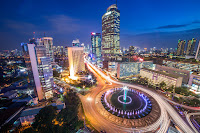
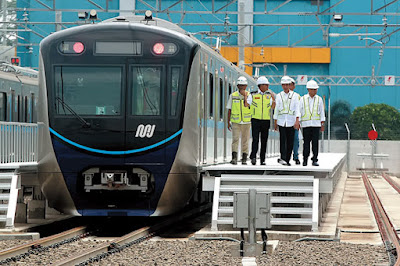
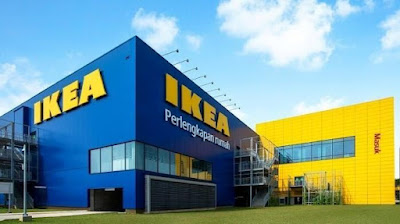

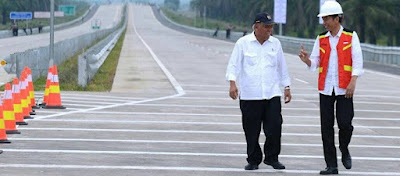

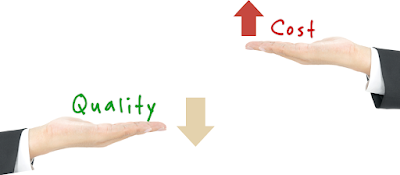
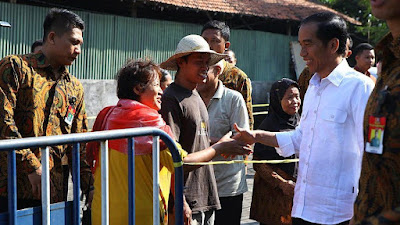

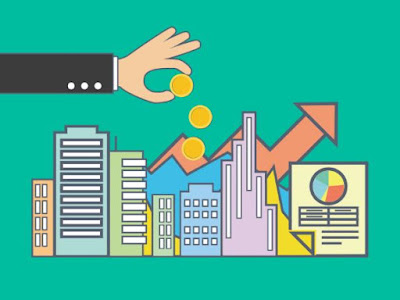

Kenya Report provides an excellent mix of news and stories that genuinely matter. Its attention to accuracy, clarity, and comprehensive coverage makes it a top choice for anyone seeking trustworthy updates daily.
ReplyDeleteNigeria Journal offers a remarkable blend of news, analysis, and insights. The website’s consistent updates, clear presentation, and trustworthy reporting ensure readers stay informed about the most important events shaping Nigeria and the world.
ReplyDeleteThe quality of reporting on Iceland Journal is exceptional. Every article reflects clarity, insight, and purpose, making topics like energy transitions, tourism trends, and societal updates accessible and meaningful for a wide range of readers.
ReplyDeleteI find HDhub4u incredibly helpful when I want a clear summary of a movie’s strengths and weaknesses. The reviews are written with care, making it easy to understand the tone, pacing, and quality without giving away major plot elements. It has become one of my most trusted guide platforms.
ReplyDelete